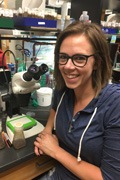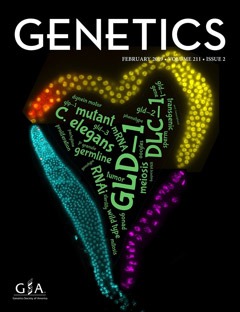International Seminar Series
The Brazilian Genetics Society (SBG), Genetics Society of America (GSA), Latin American Association of Genetics (ALAG), and International Genetics Federation (IGF) are collaborating to host a series of international seminars (in English, via Zoom) highlighting scientists in North, Central, and South America. These one-hour virtual events will showcase the high-quality research being conducted across this region, cover diverse areas in genetics, and foster interactions between research groups. The seminars will be held six times a year and feature speakers from various countries in North, Central, and South America. Each seminar will have dedicated time for audience Q&A with the speaker.
The seminars are free, but registration is required.
Upcoming seminars:
Earth BioGenome Project: Progress on a Moonshot for Biology with Harris Lewin
September 16, 2024 from 4:00–5:00 p.m. EDT
Speaker
Harris Lewin
Harris A. Lewin is a Research Professor at Arizona State University and a Distinguished Professor Emeritus of Evolution and Ecology at the University of California, Davis. Until July 2022, he was the Robert and Rosabel Osborne Endowed Chair and Distinguished Professor of Evolution and Ecology at the University of California, Davis, with joint appointments in the Department of Reproduction and Population Health, School of Veterinary Medicine, and the John Muir Institute for the Environment.
From 2011 to 2016, he served as the UC Davis Vice Chancellor for Research. Before joining the faculty and administration at UC Davis, Lewin spent 27 years at the University of Illinois at Urbana-Champaign where he held the E.W. and J.M. Gutgsell Endowed Professorship in Immunogenetics, with a primary appointment in the Department of Animal Sciences. Lewin served as Director of the University of Illinois Biotechnology Center, Founding Director of the W.M. Keck Center for Comparative and Functional Genomics, Founding Director of the Institute for Genomic Biology, and was a Center for Advanced Study member. Lewin’s current research interest is in mammalian genome evolution as it relates to adaptation, speciation, and the origins of cancer.
Lewin has received global recognition for his work: In 2008, Lewin was elected as a Foreign Member of the Royal Swedish Academy of Agriculture and Forestry. In 2011, Lewin was awarded the Wolf Prize in Agriculture, and in 2013 he was elected to the U.S. National Academy of Sciences. Lewin received the Zhongguancun International Cooperation Award from Beijing in 2021 and the Lowell Thomas Award from the Explorers Club (NYC) in 2022.
Previous Seminars
Mónica Sans: Latin American Ancestries and How They Influence Social and Medical Studies
June 24, 2024
Olufunmilayo I. Olopade: Precision medicine for breast and ovarian cancer control in diverse populations
December 18, 2023
If you would like to view this seminar, send a request to engagement@genetics-gsa.org.
Elisabeth P.B. Fontes: Begomovirus-Plant Interactions: a signaling hub coordinating plant immunity and growth
September 25, 2023
If you would like to view this seminar, send a request to engagement@genetics-gsa.org.
Brenda Andrews: Mapping Genetic Networks using Yeast Functional Genomics
August 14, 2023
If you would like to view this seminar, send a request to engagement@genetics-gsa.org.
Adalberto Luis Val: Fish of the Amazon and climate change
May 22 2023
Kym Boycott: A Diagnosis for All Rare Genetic Diseases: The Horizon and Next Frontiers
March 7, 2023
Alberto R. Kornblihtt: Chromatin control of alternative splicing: towards a combined treatment of Spinal Muscular Atrophy
December 5, 2022
Hopi Hoekstra: The genetic basis of evolutionary change: how (wild) mice adapt to novel habitats
November 7, 2022




